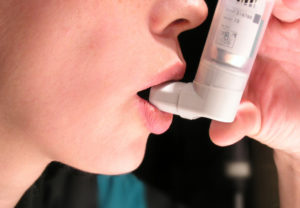 Sneezing, wheezing, runny noses, oh my!
Sneezing, wheezing, runny noses, oh my!
Allergy symptoms are caused by your body’s overreaction to a substance. This overreaction tends to occur when your immune system is already working overtime.
When your body is exposed to an allergen, it must first give the signal of an immune inflammatory response (those are your symptoms) in order to notify the rest of the system for assistance. Once recognized, your body is designed to anti-inflame, in an effort to maintain balance.
Down to the Cells
On a cellular level, when an allergen enters your body, cells release IgE (immunonglobulin E) antibodies specific to that allergen. IgE, found in abundance in the lungs, skin and mucosal lining in the body, attaches to the surface of the mast cell signalling that an allergen has been introduced and needs to be dealt with. Mast cells interact directly with bacteria and assist in the body’s defense mechanism against pathogens, as well as mediate inflammatory responses.
These cells release important chemical mediators; histamines, leukotrienes and prostaglandins which trigger the sneezing, stuffy/runny nose and wheezing. Your body should have the ability to remedy these inflammatory responses by producing its own anti-inflammatories. However, when there is dysbiosis (or an imbalance) in the body, combined with chronic inflammation or exposure to allergens, this can delay the anti-inflammatory process.
Allergy medications are a booming business: antihistamines, inhalers, nasal sprays. With a long list of side effects, including dizziness, drowsiness, nausea, vomiting and confusion.
Are there any alternatives that can help us cope with allergies and have additional benefits?
Immunity Starts from Within
It’s estimated that 80% of your immune system lives in your gut. A balance of healthy bacteria in the gut plays an important role in the functioning of the mucosal lining in the digestive tract, nasal passages and respiratory system, which are all linked!
Gut health can be weakened with the use of antibiotics, stress and a diet high in refined foods and sugars. It is important to have good gut health because a strong gut ecology and good lining of mucus can properly trap and break down allergens before they are released into the bloodstream. A strengthened immune system will also help in reducing inflammation. All of this will help in managing your body’s allergic reaction.
How do we reduce inflammation and manage our respiratory allergies? With a healthy gut!
Going with Your Gut
And how do we obtain a health gut? By eating leafy greens, fresh fruits and unprocessed foods, we give the good bacteria in the gut the nutrients needed to thrive. Additionally, supplementation of probiotics like Prescript Assist can help strengthen the gut to ensure that it’s doing its job in supporting the immune system, developing a healthy mucosal lining in the respiratory pathways and managing inflammation in the body.
Which steps will you take to improve your gut health? Remember, a healthy gut means a healthier immune system. And when you have a strong immune system, you can find relief from allergies!
Sources: http://www.reuters.com/article/us-probiotics-linked-to-lower-risk-of-al-idUSBRE97L0UK20130822, http://www.resmedjournal.com/article/S0954-6111(11)00332-5/abstract, https://chriskresser.com/got-allergies-your-microbes-could-be-responsible/, https://chriskresser.com/5-uncommon-uses-for-probiotics, http://articles.mercola.com/sites/articles/archive/2013/09/02/probiotics-allergies.asp, http://articles.mercola.com/sites/articles/archive/2001/04/14/probiotics-part-one.aspx, http://articles.mercola.com/sites/articles/archive/2013/04/18/allergy-season.aspx
